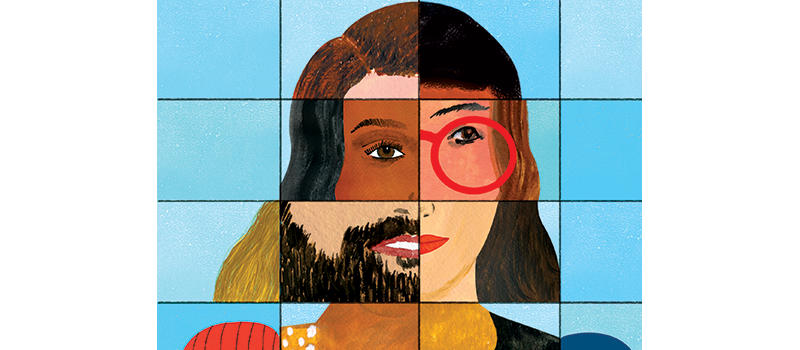Finding Joy in Community: The importance of support groups
contributed by Anna Megdell
A monthly peer discussion group for those genetically predisposed to colorectal and other cancers has created connection for an often isolated demographic.

About 15 faces line the Zoom screen on a Thursday evening. Folks of all ages and backgrounds, across the country and in different phases of life, chat with warmth and care. They share details about their health, ask for advice, laugh.
One person admits they hadn’t been feeling well but came to offer support to other members. Another says the meetings provide them with "opportunities to be in life."
This tight-knit group meets once a month to support those with hereditary colorectal cancer or genetic conditions, like familial adenomatous polyposis (FAP) and Lynch syndrome, that predispose them to developing cancer. Some members have had cancer, while others have undergone major surgeries to prevent cancer. Many receive colorectal and other cancer screenings multiple times a year.
Group co-founder Kevin Myers comes from a family with FAP. He and his four brothers were diagnosed with the condition in their early teens and have each had their colons and rectums removed.
He started the support group -- now called a peer discussion group -- in 2015 after attending a Rogel-sponsored event for people with FAP and Lynch syndrome.
"I found so much joy and freedom by interacting with others who also have a hereditary genetic condition," he says.
Kevin facilitates the group alongside Rogel clinical research project manager Erika Koeppe, with support from U-M's Human Genetics Department and the local chapter of Cancer Support Community.
While discussions inevitably deal with the realities of cancer risk, the group differs widely from traditional cancer support groups, Koeppe says.
"Cancer can often be viewed as one and done," says Koeppe. "Folks in our group often cringe when people say, 'I beat cancer,' because they're dealing with lifelong conditions. They understand that cancer isn't something they will ever ‘beat.’"
Conversations often revolve around how to adjust to dietary changes, have difficult conversations with family members who may also be at-risk, manage a slew of medical appointments and ease pain and exhaustion.
"It's about how to be your own advocate for conditions that reach into all areas of life and that many doctors are uneducated about," Koeppe says.
The group is open to those that care for members, too.
One couple attends together. The patient's husband wants to know more information than she does, so he's in charge of asking questions and learning about possible treatments to, ultimately, better advocate for his wife.
Toward the end of the meeting, one member shares concerns about working with a new physician and the possibility of surgery. Another member has seen this physician and shares the positive experience and hope they received under the doctor’s care. The first member exhales, relieved, and later shares that hearing this has changed their perspective on the coming months.
Hearing Kevin's story lifts group members' hopes, too. His father, who had FAP as well, didn’t die until age 96 last year. Myers runs at least 10 miles on Saturday mornings and has completed three marathons.
"The circumstances of these conditions are unique," Koeppe says. "Many group members say they've gone their entire lives without ever meeting someone else with the same condition. Through the group, they can hear experiences like Kevin's and learn that this diagnosis is not necessarily a death sentence. They become inspired."
After a couple of hours, the meeting ends. The members wave to each other from their living rooms, kitchens, cars. They wish each other peace and comfort until the next time they come together.
Resources:
If you're interested in signing up for this peer discussion group or learning about educational opportunities related to hereditary cancer, contact the Cancer Support Community of Greater Ann Arbor.
For more information on cancer genetics, please visit the Cancer Genetics Clinic page.
